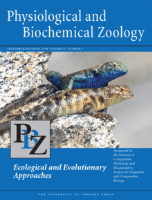
PHYSIOLOGICAL AND BIOCHEMICAL ZOOLOGY
Scope & Guideline
Fostering Innovation in Animal Science Research
Introduction
Aims and Scopes
- Physiological Ecology:
The journal emphasizes studies that explore the physiological adaptations of animals to their environments, including temperature regulation, metabolic responses, and energy allocation strategies. - Biochemical Processes:
Research on the biochemical mechanisms underlying physiological functions is a core focus, including studies on metabolism, hormonal regulation, and cellular responses to stress. - Comparative Physiology:
The journal frequently publishes comparative studies that examine physiological traits across different species, providing insights into evolutionary adaptations and functional diversity. - Environmental Stress Responses:
A significant area of interest is how various environmental stressors—such as temperature extremes, hypoxia, and pollutants—affect animal physiology and behavior. - Developmental Physiology:
The journal also covers research on developmental changes in physiology, particularly how early-life conditions influence growth, metabolism, and later-life performance.
Trending and Emerging
- Physiological Responses to Climate Change:
There is an increasing focus on how climate change affects physiological traits in various species, including adaptations to extreme temperatures and altered metabolic processes. - Integrative Approaches Combining Genomics and Physiology:
Recent studies are trendily employing genomics alongside physiological assessments, indicating a move towards understanding the genetic basis of physiological traits and responses. - Health and Disease in Wildlife:
Emerging themes include the physiological impacts of disease and infection on wildlife, reflecting a growing interest in conservation physiology and the health of ecosystems. - Behavioral Physiology and Ecology:
There is a rising trend in research exploring the physiological underpinnings of behavior, particularly in relation to stress responses and reproductive strategies. - Metabolic Phenotyping:
Research focusing on metabolic phenotypes and their ecological implications is becoming more prominent, linking individual metabolic traits to broader ecological and evolutionary questions.
Declining or Waning
- Traditional Morphological Studies:
There has been a noticeable decrease in studies focusing solely on morphological traits without integrating physiological or biochemical analyses, indicating a shift towards more integrative approaches. - Static Laboratory Studies:
Research that relies heavily on static laboratory conditions is becoming less frequent, as there is a growing emphasis on field-based studies that consider dynamic interactions with the environment. - Generalized Ecological Models:
Papers that utilize broad ecological models without specific physiological or biochemical context are less common, suggesting a trend towards more nuanced and mechanistic approaches in ecological physiology.
Similar Journals

RUSSIAN JOURNAL OF PLANT PHYSIOLOGY
Connecting Scholars to the Heart of Plant PhysiologyRUSSIAN JOURNAL OF PLANT PHYSIOLOGY, an esteemed publication with ISSN 1021-4437 and E-ISSN 1608-3407, is dedicated to advancing knowledge in the field of plant science. Published by PLEIADES PUBLISHING INC in the United States, this journal serves as a critical platform for researchers, professionals, and students aiming to explore the intricacies of plant physiology, biochemistry, and environmental interactions. With a consistent output from 1996 to 2024, the journal holds a commendable position within the academic community, reflected in its Q3 ranking among 516 journals in the Plant Science category (2023) and a competitive 44th percentile ranking in the Scopus database. Although the journal is not Open Access, it continues to attract a diverse readership of scholars eager to publish groundbreaking research. It stands out as a vital resource for anyone engaged in understanding the physiological processes that underpin plant life, thereby contributing to global agricultural advancements and ecological sustainability.

Journal of Comparative Physiology B-Biochemical Systems and Environmental Physiology
Innovating Understanding of Environmental AdaptationsJournal of Comparative Physiology B-Biochemical Systems and Environmental Physiology, published by SPRINGER HEIDELBERG in Germany, stands at the forefront of research in the fields of physiology, biochemistry, and ecological systems. With a commitment to fostering interdisciplinary communication, this journal has been a vital resource since its inception in 1974, converging scientific exploration through the lens of biochemical mechanisms and environmental adaptations in animal systems. Renowned for its rigorous peer-review process, it has achieved impressive rankings, including Q2 in Animal Science and Zoology and Ecology, Evolution, Behavior and Systematics, reflecting its substantial impact within these disciplines. The journal aims to disseminate cutting-edge research that advances our understanding of physiological and biochemical processes while addressing contemporary environmental challenges. While currently operating on a traditional access model, the journal's contributions are crucial for researchers, professionals, and students seeking profound insights into the complex interactions between organisms and their environments.

Frontiers in Physiology
Elevating the standards of physiological scholarship.Frontiers in Physiology, published by FRONTIERS MEDIA SA, is a leading open-access journal that has been at the forefront of physiological research since its inception in 2010. As a reputable publication based in Switzerland, it aims to foster the dissemination of groundbreaking findings across various domains of physiology, engaging a global audience of scholars and practitioners. With a commendable Q2 ranking in the fields of both general physiology and medical physiology for 2023, this journal stands out in its field, achieving a significant Scopus rank of #32/113 in medical physiology and #58/193 in biochemistry, genetics, and molecular biology. Frontiers in Physiology not only commits to maintaining high scholarly standards but also ensures that all its articles are freely accessible, thereby promoting collaborative knowledge exchange. With a clear focus on advancing our understanding of physiological processes, the journal plays a crucial role in the development of innovative approaches to health and disease, making it an essential resource for researchers, professionals, and students alike.

Physiological Reviews
Advancing the Frontiers of Physiological KnowledgePhysiological Reviews is a prestigious journal published by the American Physiological Society, dedicated to advancing our understanding of physiology across various domains. With an impressive impact factor that places it in Q1 quartiles for medicine, molecular biology, and physiology as of 2023, this journal is recognized as a leading source of high-quality reviews and research analyses. The journal has been a vital resource for the scientific community since its inception in 1945, providing in-depth and comprehensive insights that are crucial for both scholars and practitioners in the field. Although not an open-access publication, it remains widely accessible through institutional subscriptions, ensuring that crucial research findings are disseminated efficiently. With Scopus rankings that place it in the top percentile across multiple categories, Physiological Reviews continues to be an essential platform for the latest advancements and discoveries in physiology, making it indispensable for researchers, professionals, and students alike.

ACTA PHYSIOLOGIAE PLANTARUM
Nurturing a deeper understanding of plant physiology.ACTA PHYSIOLOGIAE PLANTARUM, published by Springer Heidelberg, is a leading journal dedicated to advancing the fields of Agronomy, Plant Science, and Physiology. With an ISSN of 0137-5881 and an E-ISSN of 1861-1664, this esteemed publication has a significant global outreach, being based in Germany. The journal is recognized for its impactful contributions, currently holding a Q2 ranking in both Agronomy and Crop Science, as well as Plant Science, and a Q3 ranking in Physiology according to 2023 category quartiles. Its Scopus rankings reflect its reputable standing within the academic community, with notable placements in Agricultural and Biological Sciences, further highlighting its importance for researchers and professionals in the field. The objective of ACTA PHYSIOLOGIAE PLANTARUM is to foster robust discussions and disseminate innovative studies that enhance our understanding of plant physiology and its applications. Though not an open-access journal, it provides comprehensive access options for readers keen on exploring cutting-edge research that drives advancements in agricultural productivity and sustainability. Through its dedication to excellence, this journal continues to be a vital resource for advancing knowledge and practices in plant sciences.
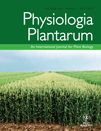
PHYSIOLOGIA PLANTARUM
Elevating Understanding of Plant Functions and ResponsesPHYSIOLOGIA PLANTARUM, published by WILEY, is a prestigious journal in the fields of plant science, physiology, and genetics, known for its impactful contributions since its inception in 1948. With an impressive impact factor and a consistent ranking in the Q1 and Q2 quartiles, it stands out in critical disciplines such as cell biology and biochemistry, ranking #24 in Plant Science with a remarkable 95th percentile standing. This journal primarily serves researchers and professionals committed to advancing the understanding of plant functions, responses, and their molecular mechanisms. Its broad scope allows for a diverse array of studies, ensuring that groundbreaking research is accessible to the global scientific community. Although it does not offer Open Access, PHYSIOLOGIA PLANTARUM remains a vital resource for scholars looking to stay at the forefront of plant biology and related fields.
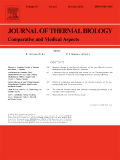
JOURNAL OF THERMAL BIOLOGY
Unraveling the Thermal Threads of Biological SystemsJOURNAL OF THERMAL BIOLOGY, published by PERGAMON-ELSEVIER SCIENCE LTD, is a leading international journal dedicated to the interdisciplinary study of thermal biology, exploring the impact of temperature on biological systems. Established in 1975 and continuing its vital contributions through 2024, the journal has consistently ranked in the upper quartiles of its categories, notably achieving Q1 in Agricultural and Biological Sciences, Q2 in Biochemistry, and Q3 in both Developmental Biology and Physiology as of 2023. With an impressive Scopus ranking reflecting its influence and reach within key biological sciences fields, this journal serves as an essential platform for researchers, professionals, and students interested in thermal impacts on biological processes. While the journal does not offer open access, it remains a pivotal resource through its robust peer-reviewed content, fostering academic discourse and advancing knowledge at the intersection of thermal dynamics and biological research.
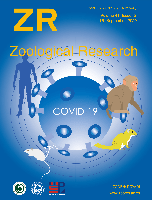
ZOOLOGICAL RESEARCH
Advancing Animal Science Through Open Access ResearchZoological Research, published by Science Press, stands as a premier open-access journal in the fields of animal science, zoology, and ecology. Since its inception in 1980, it has fostered an inclusive platform for innovative research and dialogue within the scientific community, enabling researchers from across the globe to share their findings and insights. The journal's significant impact is underscored by its classification in the Q1 quartile across multiple categories, including Animal Science and Zoology, Ecology, and Nature Conservation for 2023, as well as its impressive rankings within Scopus, placing it in the top tier of its respective fields. Situated in Beijing, China, Zoological Research not only contributes to advancing knowledge but also emphasizes the critical importance of conservation practices in today’s rapidly changing ecosystems. With its commitment to open access, researchers, educators, and students alike benefit from immediate, unrestricted access to vital scientific information, making it an essential resource for anyone involved in the biological sciences.

Conservation Physiology
Connecting research and policy for effective environmental stewardship.Conservation Physiology is a premier scholarly journal published by Oxford University Press, dedicated to advancing the understanding of physiological processes in the context of conservation and environmental science. Established in 2013 as an Open Access platform, it has rapidly gained recognition within the academic community, featuring research that spans various critical areas such as ecological modeling, management, monitoring, policy, and law. With its impressive impact in the field, Conservation Physiology holds a notable rank in Scopus and boasts quartile distinctions, reflecting its influence and contribution to Nature and Landscape Conservation. This journal serves as a vital resource for researchers, professionals, and students engaged in conservation efforts, providing them with a comprehensive understanding of how physiological insights inform effective conservation strategies and policies. Through its commitment to open access, Conservation Physiology ensures that vital research is readily available, fostering collaboration and innovation in the pursuit of global ecological sustainability.
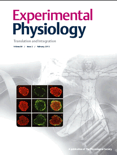
EXPERIMENTAL PHYSIOLOGY
Connecting experimental findings to clinical applications.EXPERIMENTAL PHYSIOLOGY, published by WILEY, stands as a vital resource in the fields of Nutrition and Dietetics and Physiology, providing high-quality, peer-reviewed research since its inception in 1990. With an impressive categorization into the Q2 quartile in these domains, the journal emphasizes the integration of experimental and clinical findings, making significant contributions to our understanding of physiological processes and nutritional impacts on health. The journal operates within a competitive landscape, ranked significantly in Scopus, showcasing its relevance to both the medical community and nutritional sciences, as evidenced by its rankings in Nursing, Medicine, and Biochemistry. Though it is not currently open access, the journal remains an indispensable tool for researchers, professionals, and students seeking to deepen their knowledge and stay updated on cutting-edge research. With a publication window extending to 2024, EXPERIMENTAL PHYSIOLOGY continues to influence the academic discourse and promote advancements in its respective fields.